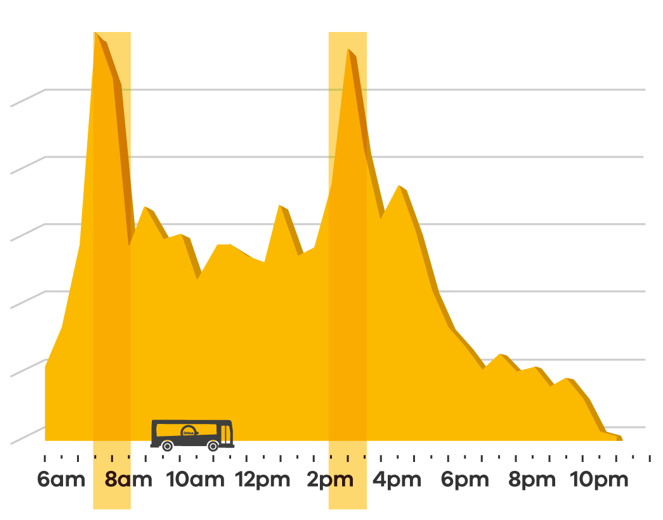The Government has said the reduction is intended to offset the rising cost of living, including rising fuel costs.
Dunedin and Queenstown bus fares will be reduced from April 1 for a period of three months. Bee Card bus fares for adults in Dunedin and Queenstown will be $1. Cash fares and children’s fares are also reduced by half. The reduced fare will be automatically applied when tagging on with a Bee Card or paying your driver with cash. Total Mobility journeys are also included and will have the additional discount applied on top of the current subsidy.
Transport Manager Doug Rodgers said, “This is welcome news for many passengers, and we are pleased to be able to help out.
“Our current patronage is almost the same as pre-Covid and we expect it to increase. However, due to Covid, a national driver shortage, and the recent increase in capacity provided for school services, we must manage that demand. It is unlikely that we will be able to provide extra services if buses are full. This will mean that if demand exceeds current capacity, passengers exceeding that capacity will have to wait for a later bus. There will be no extra buses put on.
“We are asking our passengers, including new ones attracted by the price, to keep this in mind and prepare.”
Mr Rodgers said a key way to alleviate pressure was to spread travel across the day.
“It would be extremely helpful if passengers who were able to, could move their journey to off peak times where possible. This would give those who cannot move their travel times more chance to get to their destination.”
The graph below shows peak time travel periods for Dunedin and Queenstown.


Early this year ORC worked with schools and bus operators to enable more students to get to school on the public transport network after a school service provider ceased operations.
Patronage had increased as a result of those changes, said Mr Rodgers.
“As an example, last month the number of students using services from Green Island into town rose from 361 to 742 students in one week. That’s nearly double our usual patronage. Overflow buses added to the Mosgiel service to and from town have been full too.”
Those wanting more information on updated services should follow Orbus Dunedin on Facebook and check out the public transport pages on the ORC website.
